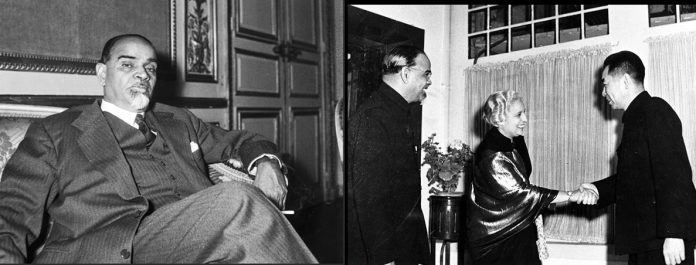– M Rafi Ahmed
Not unusual to remember and recall the sacrifices of freedom fighters during the Independence Day fete. However, there are some remarkable heroes whose daring acts have been concealed in history. Kavalam Madhava Panikkar, popularly known as Kerala Sardar, an Indian statesman and diplomat who played a pivotal role in saving thousands of refugees during India-Pakistan Partition in 1947 when he served as Secretary to the Chamber of Princes in Bikaner.
Quite unfortunate that the heroic deeds of those unsung heroes have gone unreported. K M Panikkar is one among them to help Muslim refugees to reach neighbouring Pakistan safely through convoys to escort them. While some were sent by special trains on the Bikaner State Railway, others on foot across the desert of the Princely State of Bikaner.
The first group reached Pakistan unharmed. Encouraged, he sent a second convoy, thousands of men, women, and children – on a 350 km journey across the sands with only a police escort. This group also reached Pakistan safely. While more light is being shed on the tyagis of the Indian freedom struggle movement, the bravery of such patriots has gone unnoticed and unregistered in the history of the Indian freedom movement.
A multifaceted personality, Panikkar born to Puthillathu Parameswaran Namboodiri and Chalayil Kunjikutti Kunjamma and completed his basic studies at CMS College School, Kottayam and St. Paul’s School, Vepery, Madras. Later, he joined Madras Christian College for intermediate classes. At MCC he was a contemporary of Puthezhath Raman Menon, Nandyelath Padmanabha Menon and Sadasiva Reddy among others. Later, he studied at Oxford University. Notably, he grew into a multilingual writer, historian, diplomat, educationist, and journalist.
Panikkar taught at Aligarh Muslim University and the University of Calcutta before becoming editor of the Hindustan Times in 1924. To his credit, he has several books, including Malabar and the Portuguese (1929) and Malabar and the Dutch (1931), earning praise from leaders like Jawaharlal Nehru and V.K. Krishna Menon. Post-Independence, he joined as India’s first delegation to the United Nations under Vijay Laxmi Pandit and also served as India’s first ambassador to China and later as ambassador to Egypt in 1952.
In 1956, he became the first president of the Kerala Sahitya Academy. It is learnt that the Partition deeply affected Panikkar, who later called it a time of ‘inhuman cruelty’ and ‘barbarism’ on both sides. Moreover, he was the maternal uncle of the noted poet, dramatist and lyricist Kavalam Narayana Panicker. During his political career Panikkar continued to publish articles and poems, and also translated several Greek plays into Malayalam.
Adding more jewels to the crown of Panikkar, he served as India’s Ambassador to France and a member of Rajya Sabha while not to speak of his active role as Vice-Chancellor of the University of Kashmir and the University of Mysore. He continued to serve India as a diplomat until his death in 1963. The younger generation must take a cue from the life history of Sardar K. M. Panikkar.
[The author is former Indian Express and Deccan Chronicle chief]




